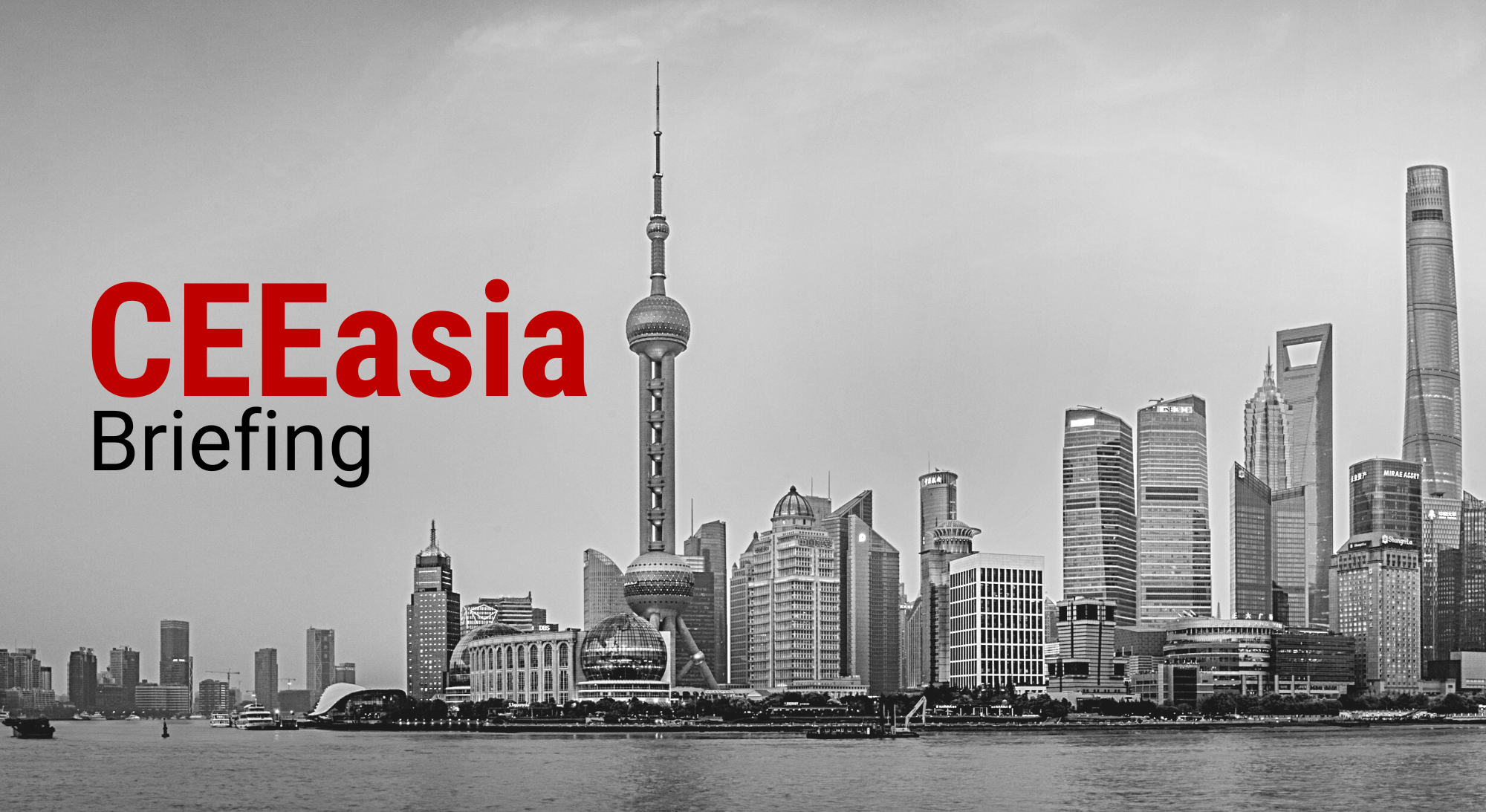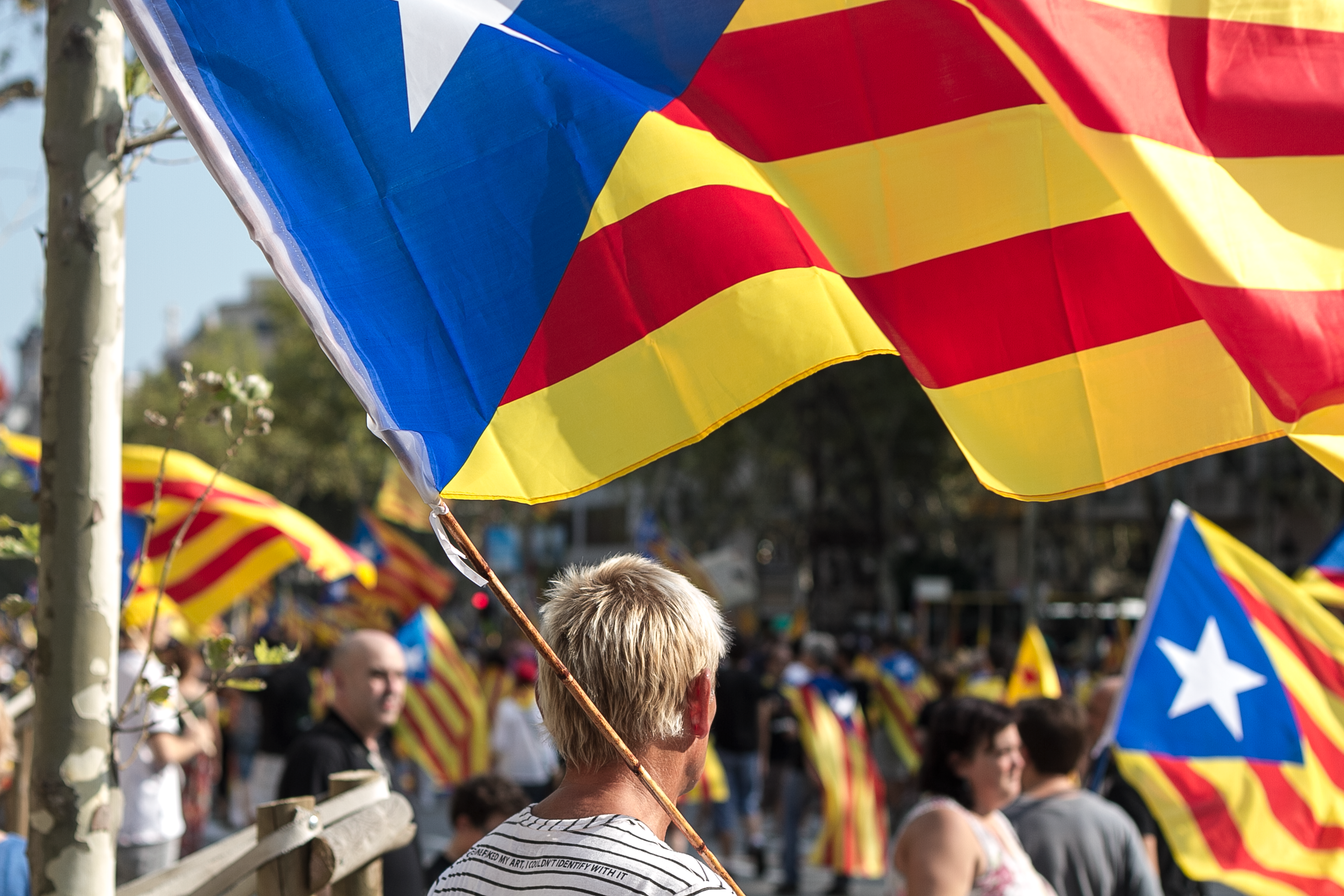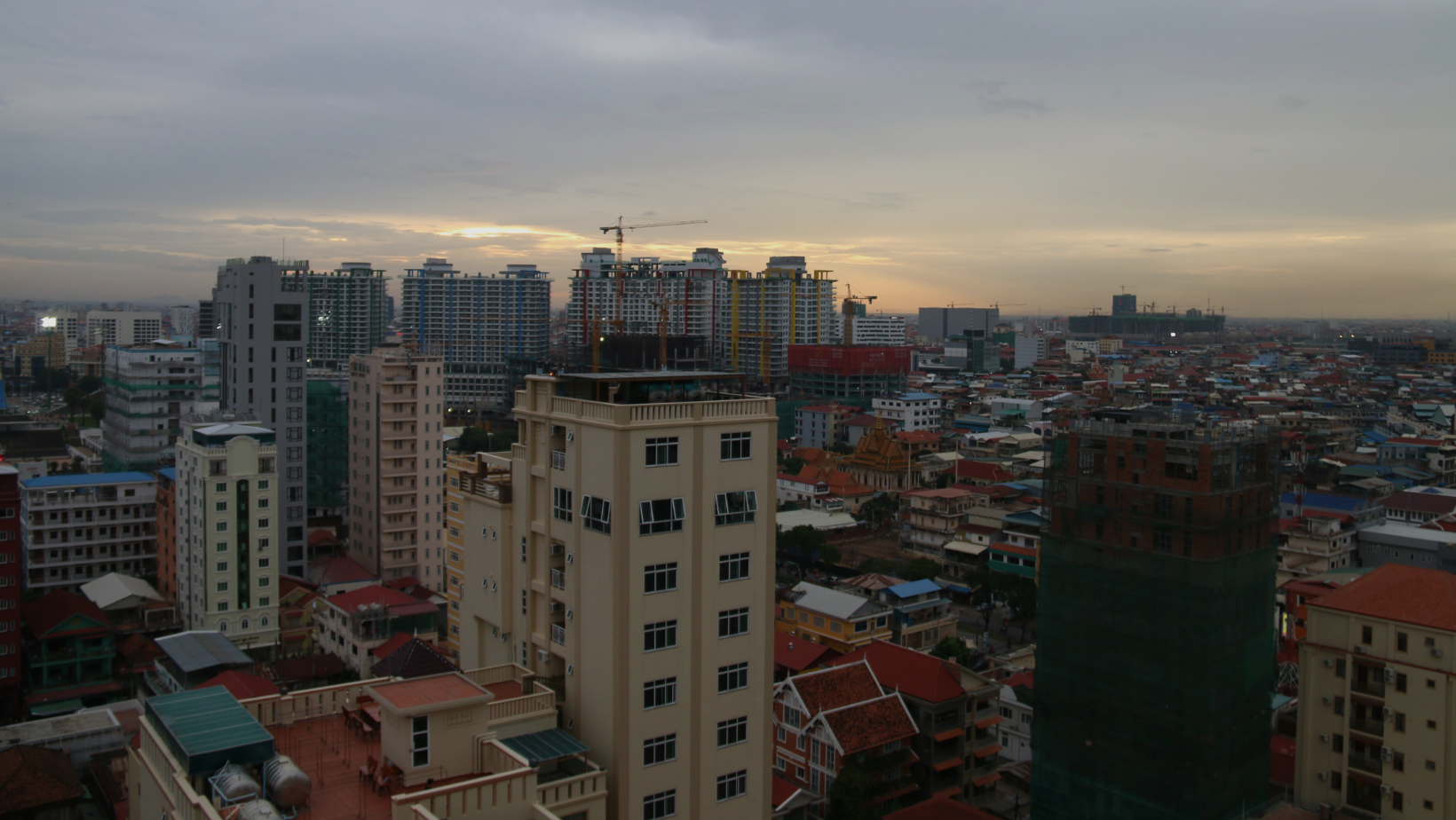Welcome to the 20th issue of the #CEEasia Briefing.
In this issue, we dissect the following topics:
- CEE countries leave Afghanistan
- China-Lithuania spat
- Reactions to China’s conviction of Michael Spavour
- European car manufacturer eyes the Chinese market
If you like what you see, please forward this message to your friends and colleagues who can subscribe here.
Do you need to know more about East Asia? Don’t hesitate to shoot us a message about custom analysis tailored to your needs.
1. Farewell Afghanistan: Central European countries complete withdrawal
What’s going on? Amid chaotic withdrawal of the US troops from Afghanistan, Slovakia, Czech Republic and Poland all evacuated its remaining nationals from the country, including some Afghan nationals. And although the Hungarian foreign ministry previously said there are no more Hungarians in Afghanistan, it later announced an evacuation operation to bring home an unspecified number of its nationals still present in the country, including some Afghan nationals who collaborated with the mission.
Going deeper… All four countries have deployed forces into Afghanistan under the NATO-led missions, most recently the Resolute Support Mission that began in January 2015. According to the Slovak officials, the country evacuated its 16 nationals, including family members, and 8 Afghan nationals who worked for the mission. Slovakia faced particular challenges in communicating its evacuation plans as it does not have its own embassy in the country. The Slovak deployment increased substantially in 2008, and the whole mission has over the years included several hundreds of troops who also worked on demining of Kandahar airport. Indeed in Kandahar, Slovakia experienced its first casualty during its deployment when a Slovak soldier was shot during an insider attack in July 2013.
Meanwhile… The Czech Republic was quick to evacuate its Ambassador, security forces, its other remaining nationals and Afghan collaborators. It has sent three evacuation flights to Kabul over the span of a few days. The last flight that returned to Czechia on 18 August consisted of 62 passengers, including 4 Afghan nationals evacuated on behalf of Slovakia. In fact, Czech Republic is also a CEE state whose soldiers were killed in Afghanistan most recently; 3 of its service members were killed by a sucide bomber in Parwan province in August 2018. Ironically, that attack which also injured a US and two Afghan soldiers near the Bagram Airfield was claimed by the Taliban, the group that now controls the country.
At the same time… In Hungary, the authorities initially said there are no more Hungarian nationals stranded in the country as its last 9 soldiers returned to Kecskemét at the beginning of June. However, last week the foreign ministry confirmed there are at least 26 Hungarian security contractors working for the Dutch Embassy. These were reportedly evacuated last Wednesday on a flight by Hungary’s military allies with a stopover in Tashkent. A separate evacuation operation was also launched last Thursday as the ministry said that not all Hungarian nationals were able to reach the Kabul airport. Poland also concluded its mission on 30 June. According to the Polish foreign ministry, around 33 000 Polish soldiers and officials have participated in the mission since its launch 20 years ago. Polish presence was particularly strong in Ghazni province, southern Afghanistan, where the country was responsible for a development program and control of the province between October 2008 and 2014. 44 soldiers lost lives during the time.

Further Reading:
Twitter: Armáda ČR, Czech Army
Pajhwok: Slovakian killed in insider assault
Hungary: Today: Hungary to Send Evacuation Team to Afghanistan, Foreign Ministry Says
International Development: The Polish Development Programme for Ghazni Province
2. Lithuania: Taiwan’s new best friend in Europe?
What’s going on? Lithuania’s decision to allow Taiwan to open a new representative office under its own name in Vilnius was met with a strong reprisal from China. Beijing, perceiving Lithuania’s courageous move as a way of engagement in official interactions with the Taiwan authorities and thus as a violation of the One China policy, proceeded with a withdrawal of its ambassador from the Baltic state and demanded similar steps to be undertaken by the Lithuanian government.
Going deeper… Since the EU stated it does not regard the opening of a Taiwanese representative office in its member states to be a breach of the One China policy, Beijing worries that the dispute with Lithuania could cause a domino effect and attempts to discourage other states from following Vilnius’s example. Meanwhile, the Lithuanian Ministry of Foreign Affairs said in a statement that Beijing’s demands would not affect the government’s intention to expand mutually beneficial relations with Taiwan. Similarly, the Lithuanian President stressed his country’s determination to defend democratic principles and values and not to back down in its disputes with authoritarian governments.
This means… Lithuania’s decision to further foster its ties with the self-ruled island comes soon after its drop out of the China-led 17+1 initiative. It also complements Lithuania’s increasing sympathy for Taiwan and support for its participation in international organizations like the WHO that can be associated with its own historical experience as a part of the Soviet Union and currently as a neighboring state of the Belarusian oppressive non-democratic regime allied with Russia. However, it is not the only CEE state which pursues deepening of relations with Taiwan. Over the summer, Lithuania along with Czechia and Slovakia donated to Taiwan tens of thousands of COVID-19 vaccine doses. Moreover, in early August, Slovakia and Taiwan signed an Arrangement on Judicial Cooperation in Criminal Matters.
Further Reading:
MFA of Lithuania: Lithuanian Foreign Ministry’s position regarding the statement of China
CEIAS: Chinese Media Watch: How “crazy, tiny” Lithuania enraged Beijing
Reuters: China demands Lithuania withdraw envoy in row over Taiwan
Financial Times: Lithuania’s president vows to be ‘decisive’ in spats with China and Belarus
CNA: Beijing’s spat with Lithuania could affect EU-China ties
3. Reaction to the conviction of Michael Spavor
What’s going on? While the lengthy extradition battle involving Huawei CFO Meng Wanzhou reached a crucial stage in Canada, China convicted a Canadian businessman Michael Spavor charged with espionage and sentenced him to 11 years in prison. Since the verdict is seen as the result of an unfair judicial process and political interference, diplomats from many allied countries of Canada expressed their solidarity and condemned the court’s decision.
Going deeper… The Minister of Foreign Affairs of the Slovak Republic also demonstrated his disapproval and distrust in the legal proceedings surrounding the case of Michael Spavor and joined other officials who accused China of not abiding by its international legal obligations to guarantee procedural fairness and due process of law. He also criticized Beijing for using arbitrary detention and sentencing to exercise political leverage over the Canadian government.
Although… China frames Canada’s and other states diplomats’ condemnation as interference into its judicial sovereignty and independent handling of cases in accordance with the law and accuses them of politicizing legal issues. However, it did not rebut that Spavor’s case could be retaliation against Canada’s arrest of Huawei CFO Meng Wanzhou on a US extradition request, as perceived by many of Canada’s allies.
Further Reading
NYT: China Sentences Canadian Businessman to 11 Years in Prison
Xinhua: FM spokesperson urges relevant countries to respect China’s judicial sovereignty
Twitter: Remarks of Slovak Minister of Foreign Affairs on Michael Spavor’s trial
4. European car manufacturer enters the Chinese market
What’s going on? A major European car manufacturer, Renault, is trying to penetrate the Chinese market. To this end, it has entered into a joint venture with the Chinese carmaker Geely.
Going Deeper… The partnership is based on using existing factories, subcontracting chains and Geely technologies in the production of hybrid, electric-petrol cars. These will be sold under the Renault brand. For Geely, this is the second joint venture with a European manufacturer, as it has a similar JV with Daimler. Sharing technologies, supply chains and production capacities significantly reduces the costs of developing hybrid vehicles and electric cars. In addition to the Chinese market, the agreement also mentions South Korean, where Geely could gain a foothold in the market through a partnership with Renault, which manufactures and sells its vehicles there. It is also likely that if successful, the venture will focus on the countries of Southeast Asia, where the demand for cars is growing.
However, it is questionable how strong a European producer will be in this joint venture. In the case of Geely – Daimler, this is an equal relationship, but in the case of Renault, it is likely that Geely will be the dominant party. The joint venture is also opening up speculation about the future of the Renault-Nissan-Mitsubishi global alliance. As the members of the alliance have so far produced cars based on unified platforms and shared parts, it is not clear whether Geely’s involvement will not harm the alliance. According to the information available, the Japanese producers were not aware of the negotiations between Renault and Geely. French cooperation with Japanese carmakers has recently gone through a serious crisis, but has come up with a new strategy. According to her, the Chinese market should be in charge of Nissan and South Asia Asia Mitsubishi.
This means… Chinese carmakers are strengthening their position in global markets, taking advantage of the efforts of European brands to gain a foothold in the Chinese market. At the same time, they are pushing to use their own supply chains, which puts them in an advantageous position. In this particular example, even a joint venture with a Chinese manufacturer jeopardized Renault’s long-term cooperation with Japanese manufacturers. The future of the Renault-Nissan-Mitshubishi alliance depends on the benefits and degree of connection of supply chains with Geely.
Further Reading:
Automotive News: Renault-Nissan-Mitsubishi alliance adopts new strategy to divide work
Automotive News Europe: Renault partners with Geely in China, South Korea






